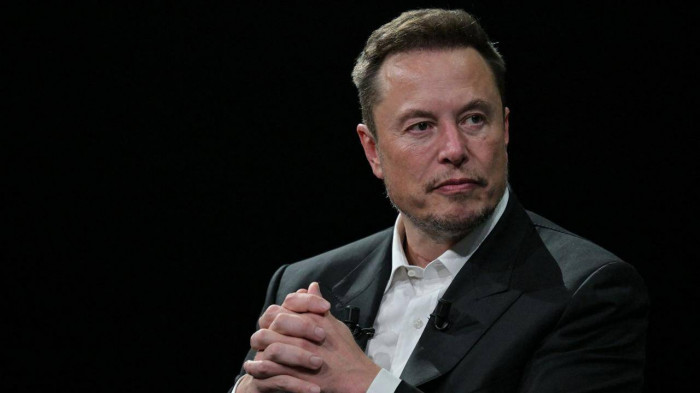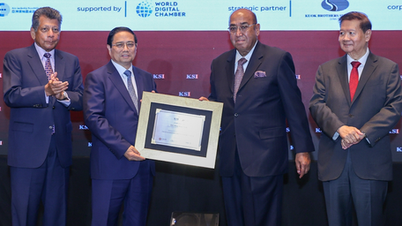The New York Times reported that on March 17, General Mark Milley, chairman of the Joint Chiefs of Staff, and General Valeriy Zaluzhnyi, head of the Ukrainian armed forces, called to discuss Russia’s war in Ukraine. Over a secure line, the two military leaders discussed air defense systems, assessed the situation on the battlefield, and shared intelligence on Russian military losses.
They also talked about Elon Musk.
Zaluzhnyi raised the subject of Starlink, the satellite internet technology developed by Musk’s rocket company, SpaceX, sources familiar with the matter said. Zaluzhnyi said Ukraine’s frontline decisions depend on Starlink and that the country wants to secure access to it and has discussed the cost of the service.
Billionaire Elon Musk
Dominate the space
Billionaire Elon Musk - the boss of SpaceX, Tesla and Twitter has become a dominant force in space as he is a major player in the strategically important field of satellite internet. And this has world leaders worried.
Since 2019, Mr. Musk has been sending SpaceX rockets into space almost every week to place dozens of satellites into orbit. The satellites communicate with devices on Earth, so they can beam high-speed internet to almost anywhere on the planet.
Today, more than 4,500 Starlink satellites are in the sky, more than 50% of all active satellites. They have already begun to change the color of the night sky, even before taking into account Mr. Musk’s plan to have as many as 42,000 satellites in orbit in the coming years.
The power of technology, which has helped push SpaceX's value to nearly $140 billion.
Starlink is often the only way to access the internet in war zones, remote areas, and places with natural disasters. It is used in Ukraine, the US Department of Defense is also a major Starlink customer, while other militaries, such as Japan, are testing the technology.
However, Mr. Elon Musk's near-total control of satellite internet has raised alarm bells.
Some concerns have been raised in Ukraine. Mr. Musk has restricted Starlink access several times during the fighting, people familiar with the matter said. At one point, he refused a Ukrainian request to turn on Starlink near Crimea.
Worried about overreliance on Mr Musk’s technology, Ukrainian officials have been talking to other satellite internet providers, though they admit none are comparable to Starlink.
“Starlink is really the lifeblood of our entire communications infrastructure,” Mykhailo Fedorov, Ukraine’s Minister of Technology, said in an interview.
Starlink satellites seen at night from Türkiye. Photo: ABC
Reach for the sky
In 2001, Martin Sweeting, a British engineer who founded satellite design and manufacturing company Surrey Satellite Technology, was encouraged by a business partner to meet “a guy who wants to put greenhouses on Mars.” That guy was Elon Musk.
Mr Sweeting's company later received investment from billionaire Musk and he was put on the board of directors before being sold to Airbus in 2009.
Mr. Musk is also known to be interested in an emerging field of research where small satellites are placed in the sky a few hundred miles above sea level, an area known as “low Earth orbit,” Mr. Sweeting said.
Satellites dating back to the 1960s were typically larger — about the size of a bus — and were located higher in space, limiting their communications capabilities. Smaller satellites can orbit at lower altitudes, allowing them to link up with terminals on Earth to beam high-speed internet service to remote locations.
So having lots of small satellites is necessary. Mr Musk launched his first Starlink satellite into orbit in 2019. Now, a SpaceX rocket carrying Starlink satellites takes off almost every week from a site in California or Florida. Each satellite is designed to operate for about three and a half years. There are so many satellites in orbit that they have been mistaken for shooting stars. Starlink provides internet download speeds of around 100 megabits per second.
“Everywhere on Earth will have high-bandwidth, low-latency internet,” Musk predicted on Joe Rogan’s podcast in 2020. The military, telecom companies, airlines, cruise lines, and maritime shippers have flocked to Starlink, which the company says has more than 1.5 million subscribers. Starlink’s rivals have struggled, though competition is growing.

Source




![[Photo] The coffin of former President Tran Duc Luong arrives in Quang Ngai](https://vphoto.vietnam.vn/thumb/1200x675/vietnam/resource/IMAGE/2025/5/25/1f1aca0d92ab47deae07934e749b35e6)

![[Photo] Funeral of former President Tran Duc Luong in Quang Ngai](https://vphoto.vietnam.vn/thumb/1200x675/vietnam/resource/IMAGE/2025/5/25/ccf19a3d8ea7450bb9afe81731b80995)
![[Photo] Welcoming ceremony for Prime Minister Pham Minh Chinh and his wife on an official visit to Malaysia](https://vphoto.vietnam.vn/thumb/1200x675/vietnam/resource/IMAGE/2025/5/25/dc30203c3ae24da3990266ec3b29bb2d)











![[Video] Merging provinces: Opportunity to restructure tourism in an inter-regional, sustainable direction](https://vphoto.vietnam.vn/thumb/402x226/vietnam/resource/IMAGE/2025/5/25/b6a80cd6ffb44af3870d0d74e742c20b)










































































Comment (0)